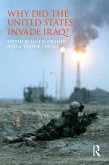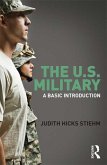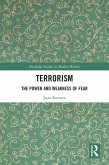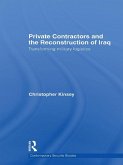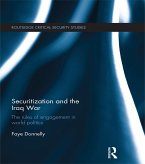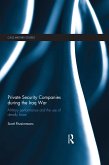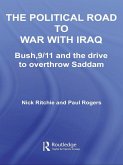In the years since the US invasion of Iraq it has become clear that the threat of weapons of mass destruction was not as urgent as the Bush administration presented it and that Saddam Hussein was not involved with either Al Qaeda or 9/11. Many consider the war a mistake and question why Iraq was invaded. A majority of Americans now believe that the public were deliberately misled by the Bush administration in order to bolster support for the war. Public doubt has been strengthened by the growing number of critical scholarly analyses and in-depth journalistic investigations about the invasion that suggest the administration was not candid about its reasons for wanting to take action against Iraq.
This volume begins with a survey of private scholarly views about the war's origins, then assesses the current state of debate by organising the best recent thinking by foreign policy and international relations experts on why the US invaded Iraq. The book covers a broad range of approaches to explaining Iraq - the role of the uncertainty of intelligence, cognitive biases, ideas, Israel, and oil, highlighting areas of both agreement and disagreement.
This book will be of much interest to students of the Iraq War, US foreign and security policy, strategic studies, Middle Eastern politics and IR/Security Studies in general.
Dieser Download kann aus rechtlichen Gründen nur mit Rechnungsadresse in A, B, BG, CY, CZ, D, DK, EW, E, FIN, F, GR, HR, H, IRL, I, LT, L, LR, M, NL, PL, P, R, S, SLO, SK ausgeliefert werden.
'Just as scholars continue to debate the origins of World War I, we will never know for certain what motivated George W. Bush to launch a war against Iraq in March 2003. The reasons for this misguided use of American military power are still shrouded in mystery, and the search for truth is clouded by partisanship and ideology. This book pierces that veil. .... The volume demonstrates that it is possible to have a serious and fruitful debate about the Iraq war after the fact, and therefore should help to inform future policy makers as they contemplate the use of force in similar circumstances.' -- Christopher Preble, Cato Institute, Washington DC
'What determined and motivated the decision to invade Iraq in 2003, perhaps the greatest debacle in American foreign policy history after Vietnam? This book brings together an excellent band of authors in a vigorous, engaging, and highly informative effort to parse this important issue.' -- John Mueller, Ohio State University



